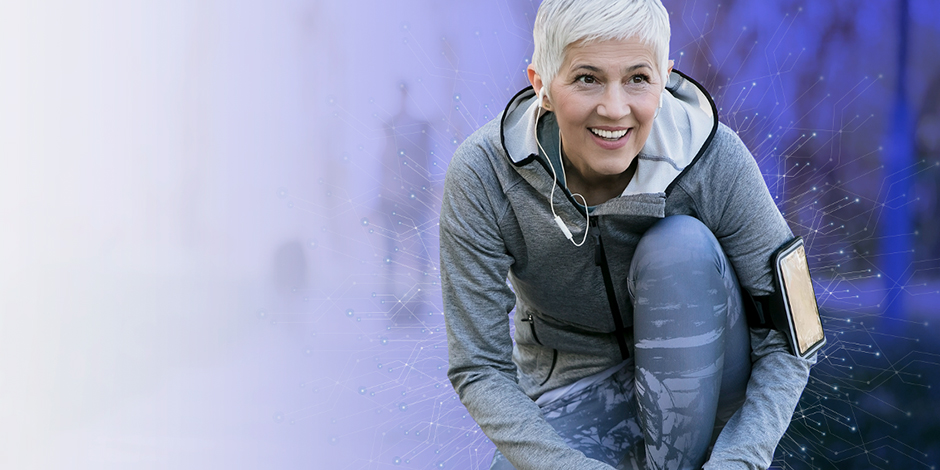The areas of our lives that remain unconnected are dwindling in numbers. Products like smart thermostats, refrigerators, cars, phones and just about everything else one can own are being designed to offer connectivity to other devices and databases. These products and their communicative capabilities are known colloquially as the Internet of Things (IoT). 
"Manufacturers to watch are undoubtedly the ones connecting their products to the Internet and adding digital applications catered to meet the ease, convenience and sophistication that today's consumer has come to demand," First Insight CEO Greg Petro wrote in an article for Forbes.
Companies doing their retail planning need to keep this in mind - incorporating the features and benefits the IoT lends to products leads to differentiation from non-IoT offerings and higher sales. Here are a couple of the retail verticals that are experiencing a shift to connected products to the delight of their investors and customers.
Smart homes
While one IoT product doesn't make a home "smart," many homeowners and builders are equipping their houses with an entire gamut of connected devices.
Already starting to gain traction in the home goods retail market are smart thermostats from companies like Nest. According to Midwest Energy News, smart thermostats can be easily programmed to the user's exact specifications, giving him or her an unprecedented level of control and assistance. Once the thermostat is set, a series of sensors can determine when family members are home and learn the optimum level of comfort for the family at various times of the day, saving families money on heating costs. While the thermostat can make decisions on its own, it relinquishes none of its manual control, making sure that the user can always make changes even from remote locations.
Gigaom reported that smart lighting is also taking off in both residential and commercial markets. IoT connected lights use sensors to learn when certain parts of a building are occupied and at what times. By learning the habits of the people who use the buildings daily, the lights can automatically turn on or off, diminishing the chances that someone will carelessly leave the light on. Some businesses found that they could cut their lighting costs by 50 to 75 percent with smart lighting.
Smart Clothes
If you watched the U.S. Open in September, you most likely saw the ball boys and ball girls constantly running around the court. You may not have noticed that they were wearing Polo Tech shirts - shirts that can transmit biometric data to a smartphone or tablet where it can then be analyzed and presented to the wearer interested in his or her performance.
IoT technology may one day proliferate and be a part of casual apparel, but for right now it seems to be largely focused on athletic wear. Professional and amateur athletes alike can wear smart clothes and track their performance over time.
Both customers and retailers are benefiting from this trend. Users of smart apparel such as Nike+ or FitBit can learn useful information about their fitness and their bodies as they use the gear over time. Many report that working to beat their previous marks is addicting, something retailers like to hear. While no concrete evidence yet suggests that wearables increase brand loyalty, it is hard not to imagine that as these applications become a part of consumers' lives, they will want to buy products that are compatible with them - such as Nike products that can communicate with Nike+.
Smart Vehicles
Anything that can be connected, will be connected - cars are no exception. Manufacturers have found automobiles a fertile ground for ideas on how both cars and drivers can benefit from added connectivity measures.

What Retail Executives Say About Supply Chain Disruption: Shortages, Pricing and Delays
We partnered with The Wharton Baker Retailing Center to create a comprehensive infographic exploring our findings.
View the Infographic
The State Of Consumer Spending: Gen Z Influencing All Generations To Make Sustainability-First Purchasing Decisions
We partnered with The Wharton Baker Retailing Center and asked consumers in the U.S. how sustainable practices are impacting shopping habits and purchase decisions.
Read the Report
InsightSuite for Small Business
Specialized Tools for Small & Emerging Businesses
The fastest and most cost effective way to increase sales, profits and sell-in for growing businesses and digitally native brands.
Learn more
Maximize Value, Speed & Profit
Learn how to leverage Voice of the Customer Analytics and 3D Product Creation to make more profitable products, faster.
Get the Free E-book
Kohl's Creates Value W/Predictive Analytics
Learn How First Insight's Predictive Tools Fuel Kohl's Success
As one of the world's leading omnichannel retailers with more than 1,100 stores in 49 states, Kohl's is leveraging First Insight's predictive analytics solution and voice-of-the-customer data to improve their business.
Watch the Webinar
Consumer Sustainability Survey 2021
The First Industry-Wide Consumer Study On Shoe Sustainability
This industry-wide survey aims to create a critical baseline that brands and retailers can use to ensure they understand what consumers actually comprehend, what terms and phrases resonate best, and what areas they should prioritize.
Download the Webinar & Findings
Navigating Disruption
How The Rockport Company is Optimizing Assortments and Pricing with Data + Digital Product Testing
Learn how The Rockport Company created a new product playbook powered by the Voice of the Customer and predictive tools.
View the Webinar & Highlights
HOTTER SHOES ATTRACTS YOUNGER AUDIENCE VIA ‘VOICE OF CUSTOMER’ ANALYTICS
While the Covid-19 pandemic hit most retailers hard, it created uniquely intense challenges for Hotter Shoes. Hotter needed to build up its e-commerce presence and appeal to a new group of shoppers at the same time.
Read the Case StudyGigaom pointed out that the IoT is the lifeblood of car sharing services. Car sharing is all about efficiency - connective functionality in shared cars allow customers to communicate with one another and manage the use of the car down to within 15 minutes, nearly eliminating wasteful downtime. Peer-to-peer sharing relies on the strength of its network, and the network relies on its ability to communicate. The environmental benefits of car sharing can only be realized if participants can maintain the efficiency needed to keep the operation running smoothly.
Embedded GPS technologies are another important feature. The ability to know exactly where you need to go and the shortest route by which you can get there will save you time, gas money and frustration.
Most modern cars come with a computer under the hood. This computer collects thousands of data points on the health of the vehicle and is connected to a manufacturer's database, where the maker can be made aware of any problems even before the driver knows about them.
Connectivity that makes the consumer's life more convenient while allowing the retailer or manufacturer to accurately meet their needs will separate the winners from the losers as the IoT trend grows to dominate retail.






